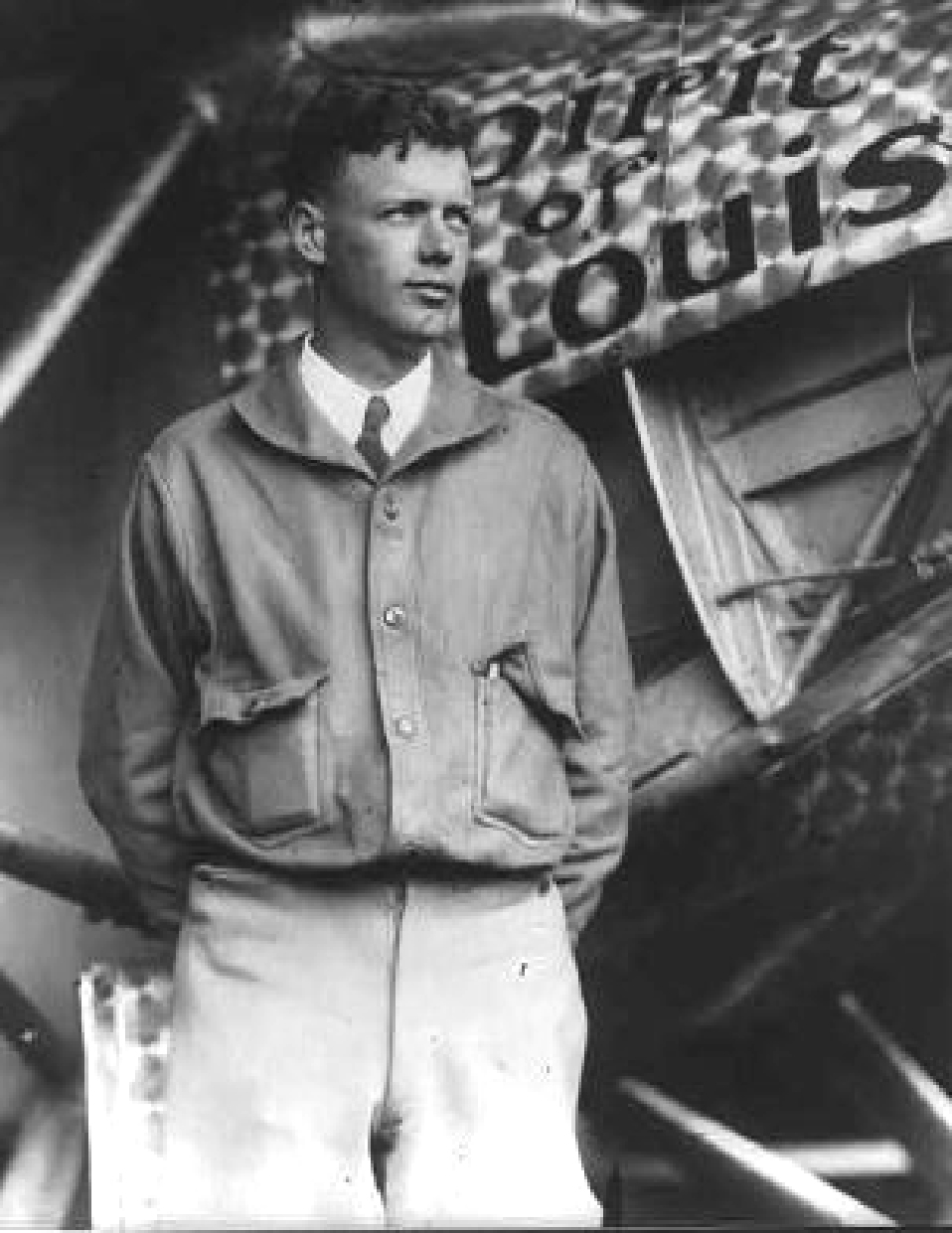Charles Lindbergh (Charles Augustus Lindbergh)

Charles Augustus Lindbergh (February 4, 1902 – August 26, 1974), nicknamed Slim, Lucky Lindy, and The Lone Eagle, was an American aviator, author, inventor, military officer, explorer, and social activist. In 1927, at the age of 25, Charles Lindbergh emerged from virtual obscurity as a U.S. Air Mail pilot to instantaneous world fame as the result of his Orteig Prize-winning solo nonstop flight from Roosevelt Field on Long Island, New York, to Le Bourget Field in Paris, France. He flew the distance of nearly 3,600 statute miles (5,800 km) in a single-seat, single-engine, purpose-built Ryan monoplane, Spirit of St. Louis. Lindbergh was the 19th person to make a Transatlantic flight, the first being the Transatlantic flight of Alcock and Brown from Newfoundland in 1919, but Lindbergh’s flight was almost twice the distance. The record-setting flight took 33 1⁄2 hours. Lindbergh, a U.S. Army Air Corps Reserve officer, was awarded the nation’s highest military decoration, the Medal of Honor, for his historic exploit. In the late 1920s and early 1930s, Charles Lindbergh used his fame to promote the development of both commercial aviation and Air Mail services in the United States and the Americas. In March 1932, his infant son, Charles Jr., was kidnapped and murdered in what was dubbed the “Crime of the Century”. It was described by journalist H. L. Mencken as “the biggest story since the resurrection” and prompted Congress to make kidnapping a federal crime and give the Federal Bureau of Investigation jurisdiction over such cases. The kidnapping eventually led to the Lindbergh family being “driven into voluntary exile” in Europe, to which they sailed in secrecy from New York under assumed names in late December 1935 to “seek a safe, secluded residence away from the tremendous public hysteria” in America. The Lindberghs returned to the United States in April 1939.
Before the United States formally entered World War II, some accused Charles Lindbergh of being a fascist sympathizer. He supported the isolationist America First movement, which advocated that America remain neutral during the war, as had his father, Congressman Charles August Lindbergh, during World War I. This conflicted with the Franklin Roosevelt administration’s official policy, which sought to protect Britain from a German takeover. Lindbergh subsequently resigned his commission as a colonel in the United States Army Air Forces in April 1941 after being publicly rebuked by President Roosevelt for his isolationist views. Nevertheless, Lindbergh publicly supported the war effort after the Japanese attack on Pearl Harbor and flew 50 combat missions in the Pacific Theater of World War II as a civilian consultant, though President Roosevelt had refused to reinstate his Army Air Corps colonel’s commission. In his later years, Lindbergh became a prolific prize-winning author, international explorer, inventor, and environmentalist. Charles Lindbergh spent his last years on the Hawaiian island of Maui, where he died of lymphoma on August 26, 1974, at age 72. He was buried on the grounds of the Palapala Ho’omau Church in Kipahulu, Maui. His epitaph, on a simple stone following the words “Charles A. Lindbergh Born Michigan 1902 Died Maui 1974”, quotes Psalms 139:9: “… If I take the wings of the morning, and dwell in the uttermost parts of the sea … C.A.L.”
Born
- February, 04, 1902
- USA
- Detroit, Michigan
Died
- August, 26, 1974
- USA
- Kipahulu, Maui, Hawaii
Cause of Death
- lymphoma
Cemetery
- Palapala Ho'omau Church Cemetery
- Kipahulu, Hawaii
- USA



